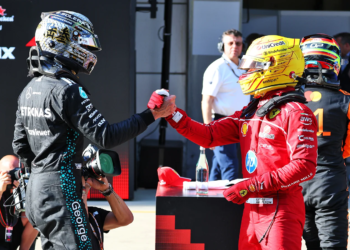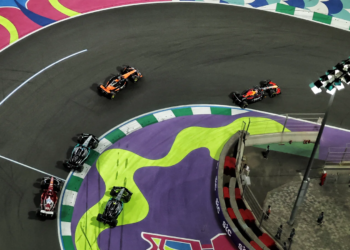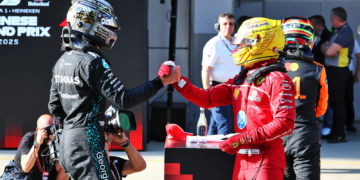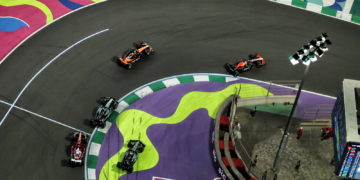Zhou Guanyu believes that Formula 1 is growing in popularity in China despite the country not featuring on the calendar since 2019 due to the Covid-19 pandemic.
Zhou, who has lived in the UK since 2012, became F1’s first Chinese racer when he joined the grid in 2022, signing for Alfa Romeo, and has consequently yet to compete on home soil.
While unprecedented protests brought China’s Covid Zero policy to an end in December, the decision was made too late for F1 organisers to push ahead with their plans for the 2023 race, and the cancellation was announced in January.

“I’m disappointed but I kind of saw this coming because of the restrictions, we didn’t open the border early enough,” Zhou told Sky Sports. “So when we had the race scheduled for April, I knew everything was too tight.
“I saw it coming but I don’t feel too bad because I feel like the home race will come, it’s just a matter of time.”
Being the world’s largest market for consumer vehicles, and a growing middle class in the country, makes China a perfect place for extravagant sports, such as F1, to flourish. Since the first Chinese Grand Prix in 2004, there had been a slow but steady rise in enthusiasm for the sport with talk of even holding additional rounds in China before the removal of the race in 2020.

In the seasons that have passed since the Chinese GP last featured on the calendar, Formula 1 has opted to prioritise growth in another emerging market for the sport, most notably the USA.
“I have no doubts all the tickets will be sold out really quickly, and that it will be packed with people around the whole circuit,” Zhou said.
“I’ve felt the popularity improve growing up, recent years, especially the last few years since I became an F1 driver.
“There are a lot of people who just want to go on a track day, driving themselves, and are also interested in watching races – so it’s nice to see that.”

Chinese fans have already had a small glimpse of local talent in F1 before. Ma Qing Hua became the world’s first Chinese driver ever to take part in an official F1 session during the first free practice session at Monza in 2012 with HRT.
And in 2013, Ma started the first practice session for the Chinese GP in his home city of Shanghai.
“I think the most important part, the next big step, will be having the home race so that people newly interested in Formula 1 can actually experience that themselves and they can really feel the impact and energy of the sport,” Zhou concluded.









